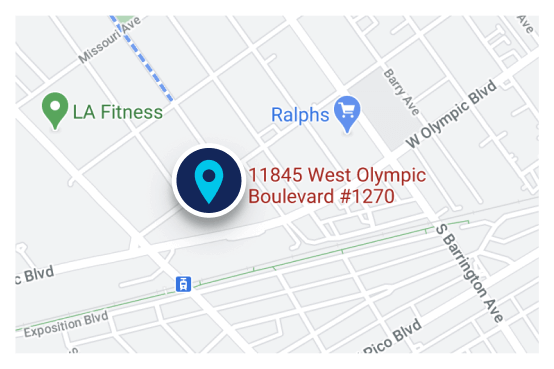
You can tell when your car’s transmission is failing. The most common sign of a bad transmission is gears slipping. This causes the engine to lose power and often RPMs to increase. The car may make noise, emit a bad smell, or vibrate. If your car’s transmission fluid is leaking, your car needs maintenance. Transmission fluid should never leak.
A car’s transmission regulates the amount of engine power that goes to the wheels to maintain speed. Once your transmission goes, your vehicle will not go.
Car transmission problems are a common cause of cars being declared lemons under California’s Lemon Law. If a motor vehicle in California has a serious defect that starts while still in the warranty period and has not been repaired despite a reasonable number of attempts, the owner may file a lemon law claim and seek a refund of all money they have spent to buy and repair the vehicle.
Of course, car dealerships don’t exactly jump at the opportunity to take back defective vehicles they’ve sold or to refund money. The experienced Lemon Law attorneys at The Barry Law Firm focus exclusively on helping California consumers with Lemon Law claims. We have a thorough knowledge of the California Lemon Law and have a strong track record of holding auto manufacturers accountable.
California’s Lemon Law covers cars with transmission issues that start within the warranty period. If you believe you have a Lemon Law claim, contact The Barry Law Firm for a FAST and FREE consultation. We use the state’s Lemon Law to protect consumers. We do not charge clients to handle Lemon Law cases.
Top 5 Ways That Tells If Your Car Has a Lemon Transmission
1. Frequent Transmission Problems
First, the California Lemon Law applies to defects in vehicles that substantially impair a vehicle’s use, value, or safety and that have not been corrected despite a reasonable number of repair attempts. A transmission problem in lemon cars easily qualifies as a substantial impairment. Two or more attempts to fix the problem would typically be considered a reasonable number of repair attempts.
Additional qualifications under the California Lemon Law are:
- The vehicle must have been bought or leased in California.
- The defect must be covered by a manufacturer’s new car warranty or a warranty that applies to a used vehicle.
- The defect was not caused by the owner’s unreasonable use of the vehicle.
2. Unusual Gear Shifts
Smooth and seamless gear transitions are characteristic of a healthy transmission. An AAMCO guide to transmission problems says it’s a problem if:
- The transmission won’t engage or stay in gear. This could be a problem with the shifter, shifter cable, the automatic transmission’s valve body, or the car’s computer system.
- Gear shifts are delayed or miss gears. An engine-related problem could be causing the computer not to allow the transmission to shift into higher gears. This can also cause overheating, which can damage internal transmission parts.
- The transmission slips or the engine revs too high. A high-revving engine is a typical sign of worn clutches or other parts inside the transmission going bad. Other potential signs of a bad transmission include:
3. Fluid Leaks and Burning
Red fluid under the vehicle is a sign of a transmission fluid leak. This not only robs the transmission of fluid that is crucial for lubrication and cooling, but it is also dangerous for transmission fluid to leak onto a hot pipe or other hot surface. A burning smell indicates a fluid leak, or in some cases, low fluid can cause a burning clutch smell.
4. Noises and Vibrations
A healthy transmission should operate quietly and smoothly. A buzzing, clicking, humming, or roaring noise from inside the transmission is usually a symptom of a bad bearing, damaged planetary gears, or another internal problem. A buzzing could also come from a bad internal sealing surface, a seal, or low transmission fluid.
5. Reduced Power and Acceleration
If the engine is running correctly, but the vehicle has little or no power, this could be caused by internal transmission problems. It could also be that the brakes are dragging due to a faulty caliper or brake hose, or the vehicle’s computer may be limiting power to protect the engine from a problem it has detected, AAMCO says.
What To Do with a Lemon in California
Because a faulty transmission threatens a driver’s safety, manufacturers usually get two opportunities to fix the problem before the owner can take action under California’s Lemon Law. You should save all paperwork pertaining to attempts to have your vehicle repaired so you can prove that your car is a lemon.
When it has become clear to you that the dealership or authorized repair shop cannot repair your car transmission problems, you should contact The Barry Law Firm for a FAST and FREE consultation.
Need Legal Help with Your Lemon Car? Call Us Today
If you believe your car qualifies as a lemon, The Barry Law Firm can handle your California Lemon Law claim from start to finish, including taking care of court filings and communications with the vehicle manufacturer and its lawyers.
Your Lemon Law attorney will negotiate aggressively to obtain a settlement from the vehicle manufacturer. If the manufacturer does not make an acceptable settlement offer, we will be ready take your case to trial.
When a consumer wins a Lemon Law case in California, the manufacturer is required to pay the consumer’s attorney fees and other related costs. That means that you can have a lemon law attorney represent you and pursue a Lemon Law claim without having to worry about attorney’s fees and out-of-pocket expenses.
Contact The Barry Law Firm of Los Angeles, CA, today. Our law firm focuses solely on California Lemon Law claims. We never charge our clients a fee. Phone us at 424-688-9516 or reach out online now to set up your free, no-obligation legal consultation.



